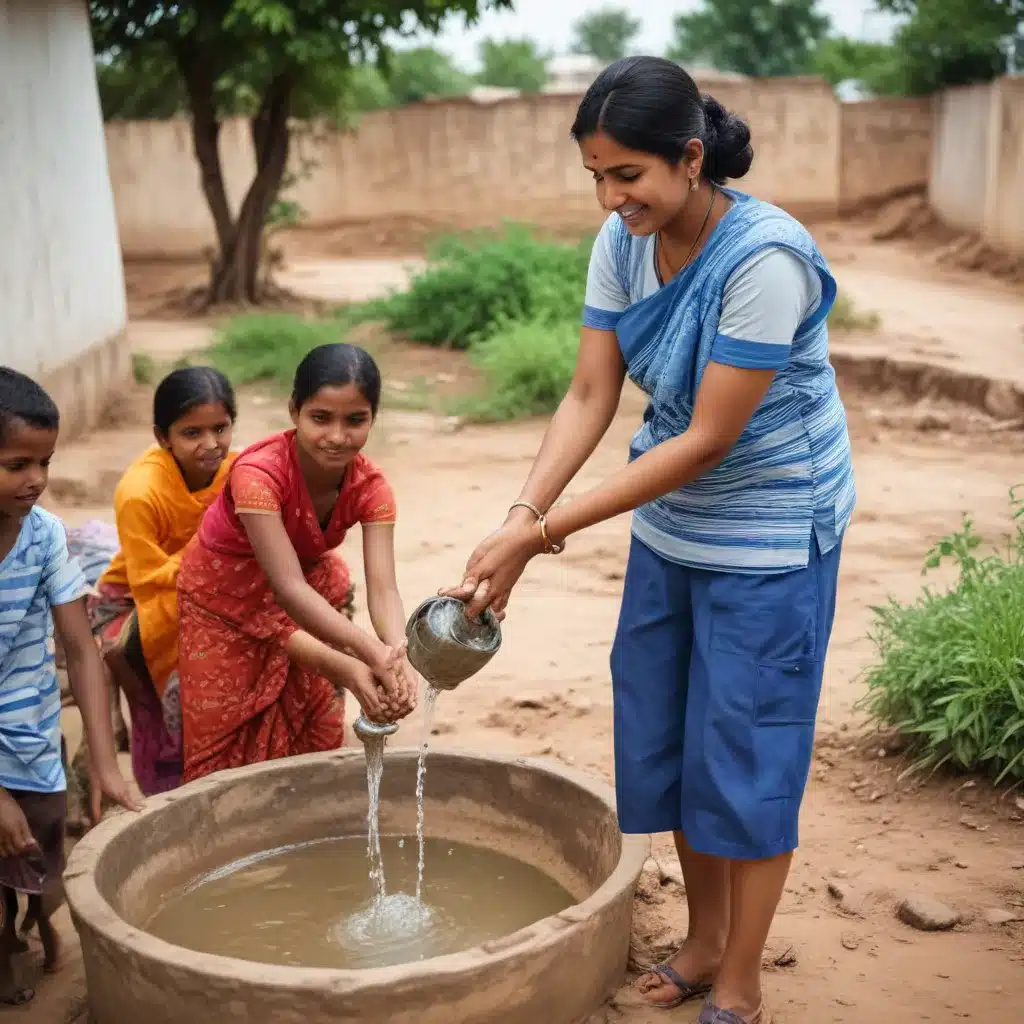
Empowering Communities for Inclusive and Sustainable Water Access
In the bustling city of Hyderabad, where rapid urbanization has strained essential services, a shift towards community-based monitoring (CBM) is transforming the water and sanitation (WASH) landscape. Historically, WASH service delivery has been plagued by top-down approaches, limited citizen engagement, and a lack of accountability. However, by empowering local communities to monitor and advocate for their water and sanitation needs, Hyderabad is paving the way for more inclusive and sustainable solutions.
Addressing the Accountability Gap in WASH
The traditional WASH service model in Hyderabad has often fallen short of meeting the diverse needs of the city’s residents. Marginalized communities, especially those living in informal settlements, have faced persistent challenges in accessing clean water and adequate sanitation facilities. This “accountability gap” has perpetuated inequities and undermined the overall effectiveness of WASH interventions.
“Community members are the true experts when it comes to the realities on the ground. By harnessing their insights and experiences, we can address the root causes of WASH challenges and drive lasting change.” – Sanjay Gupta, WASH Specialist
To bridge this gap, various stakeholders in Hyderabad have embraced the power of community-based monitoring. CBM empowers local residents to collect, analyze, and share data on the performance of WASH services in their neighborhoods. This bottom-up approach not only enhances transparency but also enables more responsive and targeted interventions.
Mobilizing Communities for WASH Monitoring
The journey towards effective CBM in Hyderabad began with the formation of community-based organizations (CBOs) – self-governing groups of residents who take an active role in managing and improving WASH services. These CBOs serve as the backbone of the CBM system, leveraging their deep understanding of local needs and challenges.
Training and Equipping Community Monitors
To build the capacities of community members, local NGOs and WASH experts have developed comprehensive training programs. These programs equip residents with the skills to collect, analyze, and present WASH-related data, empowering them to become effective monitors and advocates.
“The training sessions were eye-opening. We learned how to use simple tools like water quality test kits and mobile apps to track the performance of our local water supply and sanitation facilities,” explains Fatima, a community monitor from an informal settlement in Hyderabad.
The training also covers the broader legal and policy framework governing WASH services, enabling community members to navigate the complex landscape and engage with relevant authorities more effectively.
Leveraging Technology for Data-Driven Advocacy
To streamline the data collection and reporting process, community monitors in Hyderabad have embraced the use of digital tools and platforms. Mobile applications, such as WaterAid’s “Wash Watch,” allow residents to log real-time information on water availability, quality, and service interruptions, creating a comprehensive database of WASH performance indicators.
“The mobile app has been a game-changer for us. It’s made it easier to collect and share data, which we can then use to hold service providers accountable and advocate for improvements.” – Rajesh, a community monitor in Hyderabad
By aggregating and visualizing this data, community members can identify patterns, highlight problem areas, and make a compelling case for WASH investments and policy reforms. The use of technology has also enabled wider dissemination of findings, fostering greater transparency and public engagement.
Strengthening Partnerships for Sustainable Change
Recognizing the value of community-based monitoring, local authorities and WASH service providers in Hyderabad have forged stronger partnerships with CBOs. These collaborations have not only improved the quality and responsiveness of WASH services but also fostered a sense of shared ownership and accountability.
Institutionalizing Community Engagement
The Hyderabad Metropolitan Water Supply and Sewerage Board (HMWSSB), the city’s primary water utility, has taken concrete steps to institutionalize community engagement in its operations. The utility has established regular forums where community monitors can share their findings and work directly with HMWSSB representatives to address pressing WASH issues.
“We’ve seen a marked improvement in the responsiveness of the water utility since we started this partnership. Our regular meetings and data-sharing have helped them identify and resolve problems much more efficiently,” says Fatima.
Furthermore, HMWSSB has integrated community feedback mechanisms into its service delivery model, ensuring that the voices of residents are heard and their concerns are addressed in a timely manner.
Scaling Up Successful Pilots
Building on the success of community-based monitoring initiatives in select neighborhoods, local authorities and development partners are now working to scale up these approaches across Hyderabad. The city’s WASH sector plan includes dedicated resources and targets for expanding CBM, recognizing it as a crucial strategy for achieving universal and equitable access to water and sanitation services.
“The results we’ve seen in the pilot communities have been truly inspiring. Now, our challenge is to replicate this model and empower more residents to become active participants in the WASH decision-making process.” – Sanjay Gupta, WASH Specialist
Partnerships with civil society organizations and academic institutions have also been instrumental in developing training curricula, designing monitoring frameworks, and documenting best practices to facilitate the scaling up of CBM initiatives.
Toward a More Inclusive and Sustainable WASH Future
The embrace of community-based monitoring in Hyderabad has not only improved the delivery of WASH services but also fostered a more inclusive and participatory approach to urban development. By empowering residents to become active partners in the WASH sector, the city is paving the way for a future where all citizens have a voice in shaping the services that impact their daily lives.
As Hyderabad continues to evolve, the lessons learned from its CBM initiatives can serve as a model for other cities grappling with WASH challenges. By placing communities at the center of the solution, Hyderabad demonstrates that sustainable and equitable WASH outcomes are within reach.

